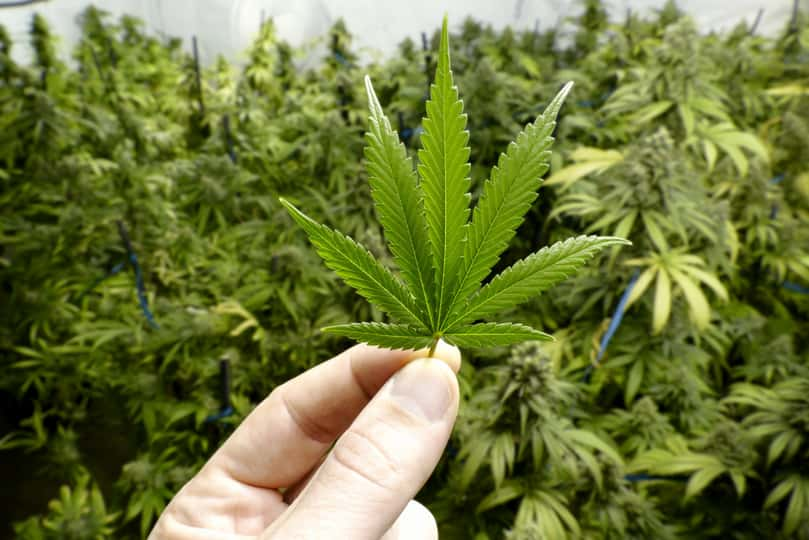Two year ago, Canopy Growth (CGC - Get Rating) was a pot stock to watch after Canada legalized cannabis at the federal level for medical and recreational use. However, since the start of 2019, shares of Canopy Growth have been range bound and have grossly underperformed the broader market. The company has returned just 2% over this period. In comparison, U.S.-based Curaleaf (CURLF - Get Rating) has seen its stock price more than triple since January 2019.
Smiths Falls, Canada-based Canopy Growth Corporation (CGC), grows and sells medical cannabis in Canada. Its products include dried flowers, oils and concentrates, soft gel capsules, and hemps. The company offers its products under the Tweed, Black Label, Spectrum Cannabis, DNA Genetics, Leafs By Snoop, Bedrocan Canada, CraftGrow, and Foria brand names. It also offers its products through Tweed Main Street, a single online platform that enables registered patients to purchase medicinal cannabis from various producers across various brands.
Curaleaf Holdings, Inc., (CURLF), which is based in Wakefield, Massachusetts, operates as an integrated medical and wellness cannabis operator in the United States. It operates in two segments: Cannabis Operations and Non-Cannabis Operations. Its Cannabis Operations segment produces and sells cannabis through retail and wholesale channels. Its Non-Cannabis Operations segment provides professional services, including cultivation, processing, retail know-how and back-office administration, intellectual property licensing, real estate leasing services, and lending facilities to medical and adult-use cannabis licensees under management service agreements.
However, given that in the investing world past performance is never necessarily an indication of future performance, which of these pot giants is a better buy right now. So, how do Canopy Growth’s prospects stack up against Curaleaf’s? Let’s find out.
Canopy Growth continues to remain unprofitable
Canadian cannabis companies have been negatively impacted by a slew of industry-wide issues. These include lower than expected demand due to the slow rollout of retail stores in major Canadian provinces, as well as a thriving black market. This in turn has led to high inventory levels, massive write-downs and widening losses. An increase in competition has exacerbated these companies’ business challenges.
In the quarter ended December 31, Canopy Growth reported sales of CAD$153 million, which represented a 23% increase 23% year over year. The revenue growth allowed Canopy to reduce its EBITDA losses to CAD$68 million, compared to CAD$97 million in EBITDA losses in the prior-year period.
While Canopy Growth has burnt through significant cash in recent quarters, it has a strong liquidity position because the company is backed by U.S. beverage heavyweight Constellation Brands (STZ). Over the last handful of years, , Constellation Brands has pumped more than $4 billion into Canopy Growth for a 38.6% stake. Constellation’s ex-CFO David Klein is now the CEO of Canopy growth. He has focused on reducing costs in the past year.
Canopy Growth will also benefit from Constellation’s beverage expertise, allowing it to launch a wide range of cannabis-infused beverages that are high-margin products. The company is already expanding its portfolio of Cannabis 2.0 products, which include edibles and vapes in addition to beverages.
Curaleaf is growing top line at a rapid pace
Curaleaf is one of the largest cannabis retailers in the U.S., where it operates more than 100 dispensaries. It is also the largest pot company in terms of annual sales. Curaleaf has a presence in 23 states in the U.S. and leads the market in states that include New York, New Jersey, Connecticut, Vermont, Massachusetts, Maryland, Pennsylvania and North Dakota.
CURLF also claims to be among the top three retailers in Florida, Arizona, Maine and Illinois. The prospect of cannabis legalization at the federal level in the U.S. will be a key driver of top-line growth for Curaleaf in the coming decade. Curaleaf recently acquired EMMAC Life Sciences, which is Europe’s largest vertically integrated marijuana company.
In the quarter ended December 31, Curaleaf reported sales of $230.3 million, representing an increase of 205% year over year. In 2020, its sales were up 186%, totaling $626.6 million. While Curaleaf is still not profitable, it has posted seven consecutive quarters of positive EBITDA. And in the fourth quarter of 2020, its EBITDA soared to $53.8 million compared to just $13.8 million in the prior-year period.
The verdict
Given Curaleaf’s enviable growth rates, rising profit margins and massive size, we think it’s a no-contest when compared to its counterpart north of the border. If and when cannabis legalization takes place in the U.S., Curaleaf’s already established presence will allow it to gain traction in what will be the largest marijuana market in the world.
Further, despite Curaleaf’s higher revenue growth, the stock is trading at a lower multiple compared to Canopy Growth. Curaleaf ‘s stock is valued at a market cap of $9 billion, which means its trading at a trailing price to sales multiple of 14.3x. In comparison, the trailing price to sales multiple for Canopy Growth is twice as high at 32x, making Curaleaf a much better bet.
Want More Great Investing Ideas?
CGC shares were trading at $27.52 per share on Monday morning, up $0.11 (+0.40%). Year-to-date, CGC has gained 11.69%, versus a 12.11% rise in the benchmark S&P 500 index during the same period.
About the Author: Aditya Raghunath

Aditya Raghunath is a financial journalist who writes about business, public equities, and personal finance. His work has been published on several digital platforms in the U.S. and Canada, including The Motley Fool, Finscreener, and Market Realist. More...
More Resources for the Stocks in this Article
| Ticker | POWR Rating | Industry Rank | Rank in Industry |
| CGC | Get Rating | Get Rating | Get Rating |
| CURLF | Get Rating | Get Rating | Get Rating |






